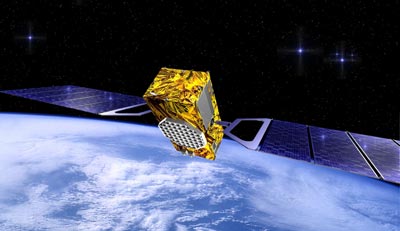Letter: Galileo and Compassby Ryan Caron
|
| At no point was it claimed by the US government that interfering with GPS was a “goal” of the EU program. |
The plan for the launch of the Galileo satellites has been finalized since 1999 and does not include any launches onboard Chinese Long March vehicles. The plan, which was widely reported, is to launch several Galileo satellites simultaneously aboard European Ariane 5 rockets, and the remainder on Russian Soyuz-Fregats (which will probably fly from French Guiana, not Baikonur). Despite Chinese ambitions to launch Galileo satellites, the use of Long March has been viewed negatively by the Europeans since they recently invested over a billion dollars overhauling the Ariane 5 after its early mishaps.
Third, the article asserts:
Now that the Europeans have decided that China cannot be promoted to full membership in their program, China has no good reason to continue to accept a minor role.
China accepted a minor role from the beginning, and if they continue working with Galileo they can certainly receive additional scientific and technological insight into navigation systems. They certainly need it given the limitations of Beidou. It is also conventional wisdom that the Chinese were hoping to manufacture of commercial Galileo receivers, a potentially lucrative market. The problem is not that Beijing will not be a full member (it never was) but that under the Supervisory Authority they may not have any membership at all. This double-punch of economic and technological setbacks is certainly grounds for threatening to counter Galileo with Compass.
Fourth:
They [the Europeans] would find it difficult to offer to lift the post-Tiananmen ban on sales of military equipment in spite of the decision a few years ago to ‘in principle’ resume arms sales. In theory they could threaten to sell weapons to Taiwan. Taipei would certainly be happy to buy more submarines from Germany, France, or Sweden. If the Europeans can credibly threaten this, it may be the only card they really have.
There are certainly ways within the Galileo program to satisfy Chinese desires—or frustrate them. For instance, since Galileo’s business model is not as strong as once believed, many of the commercial applications are being protected for European industry. This shift took away the prospect of Chinese industry manufacturing Galileo receivers, which would make anybody upset. A new guarantee that China would receive this market could diffuse the Compass threats.
Fifth:
The deal the Chinese have apparently signed with a Swiss company to buy hydrogen maser atomic clocks for their new Compass system is not something that the European Union has a lot of control over. In spite of the fact that such devices are, in effect, guidance systems for long-range nuclear missiles, they do not appear on any international list of military or dual-use items.
The clocks purchased are rubidium clocks, not hydrogen maser. This has been confirmed by high-ranking ESA officials, and an official inquiry was sent to China.
| There are certainly ways within the Galileo program to satisfy Chinese desires—or frustrate them. |
There is a huge difference between hydrogen maser and rubidium. The former are a new technology and are effectively Galileo’s claim to fame. Rubidium clocks, on the other hand, have been around a long time. While rubidium clocks are constantly being improved, in no small part due to their use aboard GPS, the particular clocks sold to China are of an old series built in the mid-1990s for a Russian space science program that has been indefinitely postponed. These particular clocks are not even close to being state-of-the-art.
Furthermore, while atomic clocks are used in navigation satellites (thus augmenting the guidance systems of ballistic missiles), they are also used in a vast number of commercial applications. These are not military-exclusive components, which is why they are not regulated by the extremely strict laws regulating the trade in missile parts.
Lastly, the article asserts:
Today, those who want to reform the US ITAR (International Trade in Arms Regulations) will once again find it more difficult to argue their case because of such sales. Over the long term such transactions do more to weaken the position of the World Trade Organization and other multinational institutions. Inside the US there is a growing feeling that these types of institutions and agreements serve only to make the world a more dangerous and deadly place, they should be scrapped.
Since Mr. Dinerman resides inside the United States this statement is technically true. However, by the same token, it is also true that there is a growing feeling inside the United States that these types of institutions are the only way to continue to sort legitimate technology sales apart from truly dangerous transactions. ITAR is not the final word in arms control, just an important tool in a multi-faceted approach. And this time, it worked. Civil or dual-use applications need to be encouraged, not stifled.
